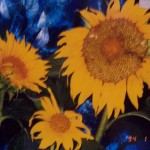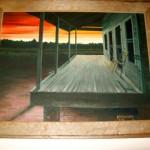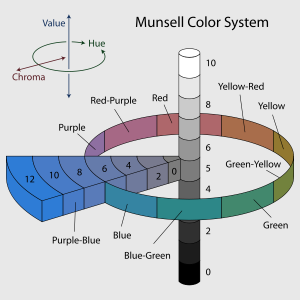
“There are just so many notes in music and just so many colors, but it’s the beautiful combination that makes the masterpiece.”~Charles Hawthorne
Exercise 1: I like to think of a color wheel to not be a wheel at all, but, instead, a color cylinder with a ten gray scale of each color from the darkest hue of each color at the bottom to the lightest hue at the top. The true color would be in the middle. This is very simple exercise for an artist to accomplish. All it takes is some time and paint, but it is another helpful tool to have around the studio.

But to make the masterpiece that Charles Webster Hawthorne (founder of the Cape Cod School of Arts – 1899) referred in his quote, it takes a lot more than the simple color cylinder above. The cylinder as created has value, but it does not define the neutral grays of each of the colors as they are used next to another color; so our experiment must expand. This experiment will not solve all the problems an artist faces when trying to stay within a color range, but, again, it is a good tool to have in the studio.
Exercise 2: Create a color cylinder with two colors opposite one another on the color wheel. Mix them around the cylinder in ten hues toward middle gray. Start this in the middle of the cylinder and work hues up and down, creating a gray scale (up 5 shades lighter toward the top — 5 shades darker to the bottom).
The exercises above are not necessary to be a good artist. However, they are very helpful in understanding the three qualities of color: Hue, value, and intensity. There are many great charts and systems creating the colors needed to paint. Many artists prefer a simple color wheel to mix their mixtures on sight. Usually, these artists have already studied color, color wheels, and mixtures, and confidently know what they are doing. A good number of artists use more complicated color wheels and studies, such as the Munsell system (below).

Use of the depiction of the Munsell Color System (left) is for education and information only, as it relates to this article.
Be sure to sign up for the ART CENTER INFORMATION newsletter (above right).
